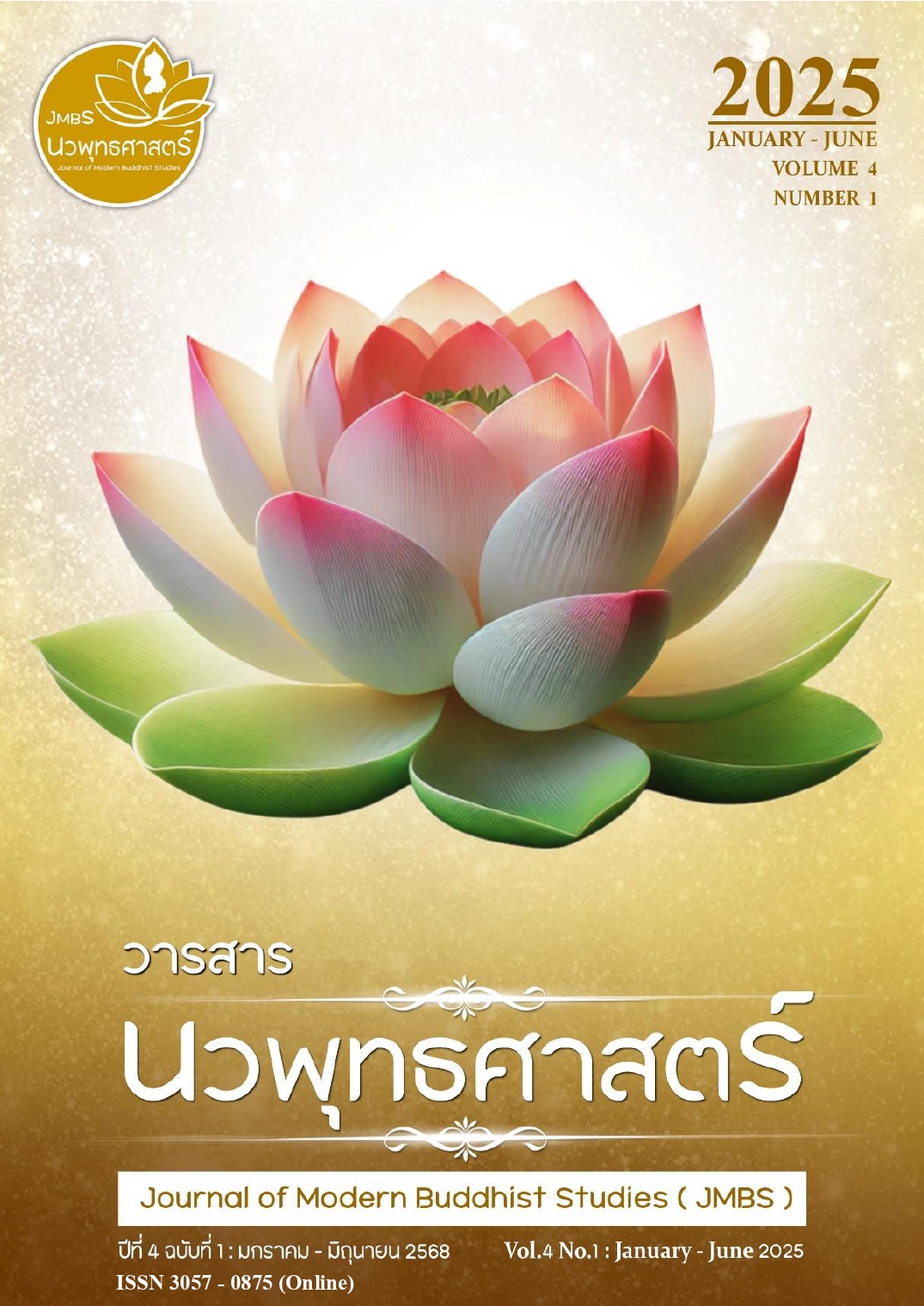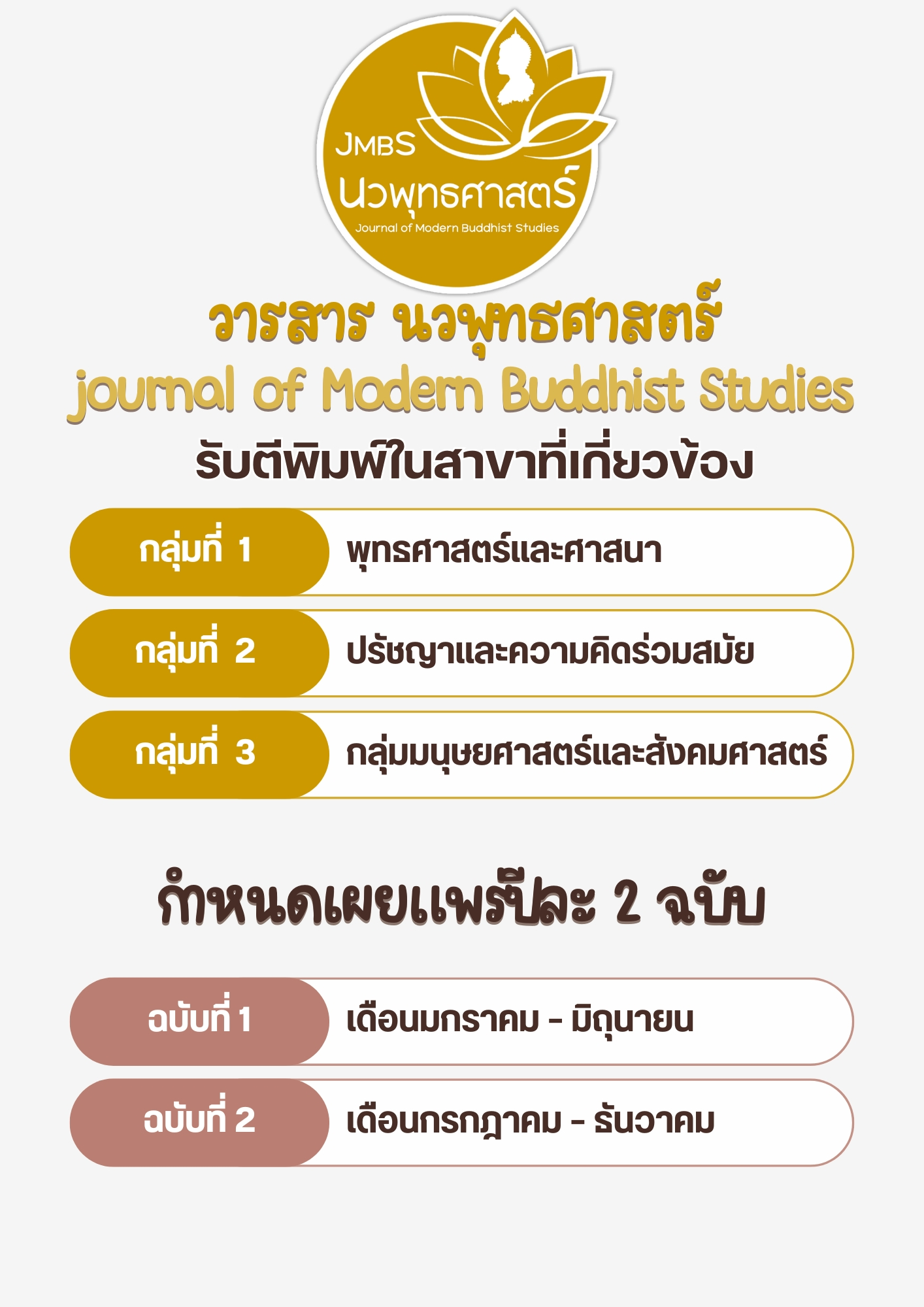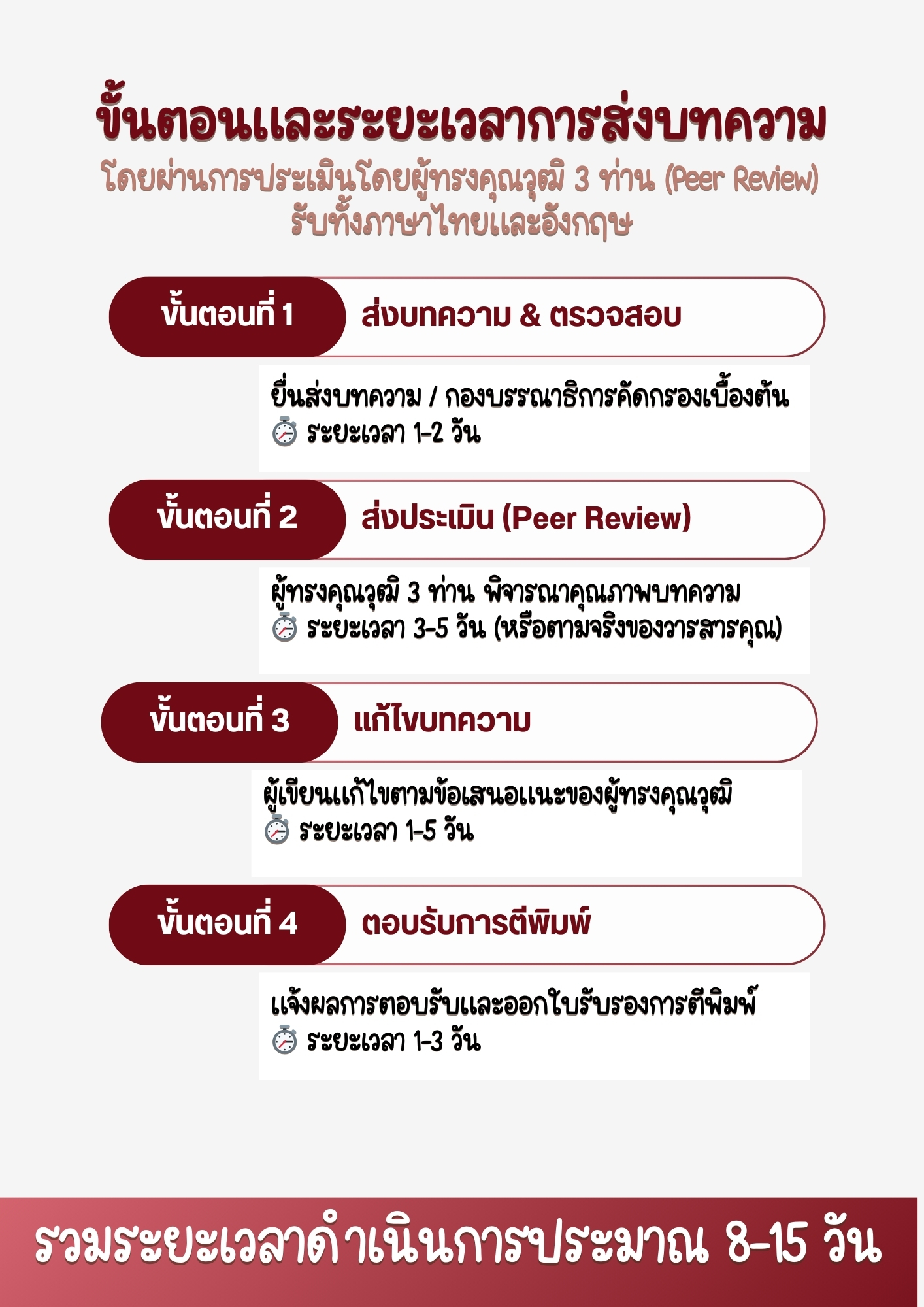Participatory learning model for developing Thai language skills for students
Keywords:
Learning Management Model, Thai Language Skills of Learners, Thai Language and Learning Management.Abstract
This research aimed to study the participatory learning model for developing Thai language skills for students, to analyze learners’ opinions on the participatory learning model for developing Thai language skills, and to present the participatory learning model for developing Thai language skills for students. It consisted of qualitative research using in-depth interviews with 8 relevant target groups and quantitative research by collecting data using questionnaires with 60 participants. The research results found that:
1) Overall, the learners were more enthusiastic in teaching Thai language, expressed their opinions, asked questions, and participated in activities and group discussions frequently, and became more confident. When writing group work or writing short stories together, they were able to develop analytical thinking, writing, and communication skills, and helped build confidence in using Thai language.
2) The overall analysis of learners’ opinions on the participatory learning model for developing Thai language skills was at the highest level, with a mean of 4.54 and a standard deviation of 0.497. When considering each aspect, it was found that in terms of bringing things that should be improved and corrected The most important aspect is the mean of 4.63 and the standard deviation of 0.486.
3) Participatory learning allows us to gain experiences that are not just reading and writing in the traditional way, but also analyzing and discussing with friends, making reading and writing more meaningful. It helps us practice using reason in speaking and responding, as well as thinking deeply about the content. We can learn to listen to our friends' opinions and learn to adapt to people in the team.
References
กระทรวงศึกษาธิการ (2546). พระราชบัญญัติการศึกษาแห่งชาติ พ.ศ.2542 และแก้ไขเพิ่มเติม (ฉบับที่ 2) พ.ศ. 2545. กรุงเทพมหานคร: โรงพิมพ์การรับส่งสินค้าและพัสดุครุภัณฑ์ (ร. ส. พ.).
เกวลิน งามพิริยกร และสิทธิกร สุมาลี (2564). “การพัฒนากิจกรรมการเรียนการสอนวิชาภาษาไทยในระดับการศึกษาขั้นพื้นฐาน”. วารสารสันติศึกษาปริทรรศน มจร. 9(3).
ขวัญนภา สุขคร (2554). ความหมายของการวิจัย. ลำปาง: มหาวิทยาลัยราชภัฏสวนดุสิต ศูนย์ลำปาง.
คณะอนุกรรมการปฏิรูปการเรียนรู้ (2543). ปฏิรูปการเรียนรู้ ผู้เรียนสำคัญที่สุด. พิมพ์ครั้งที่ 5. กรุงเทพมหานคร: สำนักคณะกรรมการการศึกษาแห่งชาติ.
พระธรรมปิฎก (2541). การศึกษากับการพัฒนาอย่างยั่งยืน. กรุงเทพมหานคร: สำนักพิมพ์มูลนิธิพุทธธรรม.
พระพรหมคุณาภรณ์ (2547). ธรรมกับไทยในสถานการณ์ปัจจุบัน. กรุงเทพมหานคร: เฟื่องฟ้าการพิมพ์.
รัตนะ บัวสนธิ์ (2552). การวิจัยและพัฒนานวัตกรรมการศึกษา. กรุงเทพมหานคร: คําสมัย.
สัญญา สัญญาวิวัฒน์ (2546). ทฤษฎีและกลยุทธ์การพัฒนาสังคม. กรุงเทพมหานคร: มหาวิทยาลัยมหาจุฬาลงกรณราชวิทยาลัย.
สำนักงานคณะกรรมการการศึกษาแห่งชาติ (2545). พระราชบัญญัติการศึกษาแห่งชาติ พ.ศ. 2542 และที่แก้ไขเพิ่มเติม (ฉบับที่ 2) พ.ศ. 2545. กรุงเทพมหานคร: พริกหวานกราฟฟิค.
อนุตรศักดิ์ วิชัยรัตน์ สำราญ กำจัดภัย และจินดา ลาโพธิ์ (2567). “รูปแบบการเรียนการสอนภาษาไทยตามแนวคิดการเรียนรู้โดยใช้สมองเป็นฐานร่วมกับแนวคิดสมดุลภาษา”. วารสารวิชาการมหาวิทยาลัยราชภัฏศรีสะเกษ. 18(2).
อรทัย มูลคำ และสุวิทย์ มูลคำ (2544). การบรูณาการหลักสูตรและการเรียนการสอนโดยเน้นผู้เรียนเป็นสำคัญ เล่ม 2. พิมพ์ครั้งที่ 2. กรุงเทพมหานคร: ภาพพิมพ์.
อรอนุตร ธรรมจักร (2565). “การพัฒนาทักษะความคิดสร้างสรรค์ด้วยวิธีการสะท้อนคิดจากการปฏิบัติการออกแบบและพัฒนานวัตกรรมการสอนภาษาไทยของนักศึกษาวิชาชีพครูสาขาวิชาภาษาไทย คณะครุศาสตร์มหาวิทยาลัยราชภัฏชัยภูม”. วารสารบัณฑิตแสงโคมคำ. 7(2).
อาณัติ วงศ์โกสิตกุล (2536). “การเปรียบเทียบระบบเสียงภาษาไทยกับภาษาอังกฤษเพื่อการสอนภาษาไทย แก่ชาวต่างประเทศ”. วารสารภาษาและวัฒนธรรม. 12(1).
Tosi, H.L. and Carroll, S.J (1982). Management. New York: John Wiley & Sons.
Additional Files
Published
How to Cite
Issue
Section
License
Copyright (c) 2025 Journal of Modern Buddhist Studies

This work is licensed under a Creative Commons Attribution-NonCommercial-NoDerivatives 4.0 International License.








